Oh, guys, you’re in for a treat. Esther Emery chatted with me for an hour about faith, and motherhood, and realizing she’s not a porcelain person, and I was blessed. I think you will be too. Her writing and life always remind me that I have choices. About everything. Which is heady and wonderful and terrifying and bold. Won’t you join our wee conversation?
So you just wrote a post responding to this critique: “It’s too bad she’s so angry, because otherwise her writing is really beautiful.” That sentence made me want to throw things, and also cry, because feeling and expressing anger has been life-saving for me. Can you talk to me about saying yes to being angry, and what follows after?
There’s a difference between anger that you’re feeling, and anger that people experience in your words. I actually think that in the posts the person reacted to, I expressed a joy in the pursuit of justice. People who were threatened by my words interpreted them as angry.
But you know what? I need to be able to express my anger. It’s part of my humanness.
I feel angry at the ice in winter. I feel anger at my children when they’re not behaving. If I can’t express anger, I’m vulnerable to being silenced. I’d love to be porcelain and perfect, but I’m not.
A great teacher I once had said that emotions are like waves: they come and they go. So my feelings don’t own me or define me. They pass through.
Has there been a time where you’ve had trouble accepting the anger that you feel?
I’ve always been afraid of being too much. I wish I could say that fear was unfounded. But I’ve been rejected for being too much, too loud, too concerned about fairness and making the world a better place. Being rejected has really hurt my heart.
My authenticity is always integrated into my quest for belonging. If I feel like I’m welcome and loved, I can be as strong and as big as I am.
So speaking of belonging, in your recent posts I’m sensing that much of your spiritual practice is solo right now. Mine is too. This is not something really talked about in church. Can you talk about how you’ve learned to say yes to your need for spiritual solitude?
It’s a threatening thing to be able to experience the divine directly without an intermediary. It’s threatening when we say, “God is with me, here in my car. I don’t have to be in the “right” place for God to see me.”
Right now, I need to lean into the extreme: God is right here. God is in this creek, in this sky so I can win back that direct connection to God.
What work has gone into accepting that solitude is what you need right now?
I’m not alone in wanting to be alone. Also, through the Internet, I have a faith community.
I thank goodness than as I’ve gotten older, I have seen myself swing back and forth. So I know I’ll go back. Before, I had a fear that I wouldn’t go back if I went too far into aloneness.
I’m no longer afraid of that. I’m no longer afraid I will break.
Instead, my bigger fear is that solitude is so secret, and so intense. If church is in your everything, you fear being shattered by it, having it prevent you from engaging in normal activities.
Solitude is a slowly growing richness.
Can you talk a bit about your journey into faith?
I had a very feminist, secular identity as a young adult. My mom was born again, and my father was not, so I grew up experiencing those extremes. My mother always catered to the fringes of society, so as a child, I experienced very conservative Christianity back to back with very secular culture. It gave me an outsider’s perspective.
Also, I have family that’s Mormon, and Catholic, so I experienced a dizzying array of churches. It’s difficult to embrace Christianity when you see all the different versions up close. It appears to lack integrity.
So I chose the secular path. I was an intellectual, and I was smarter than religious people.
A while back I went for a year without using the Internet. In the process, I realized I was actually on a spiritual journey.
My friends and cohorts were very shocked—I was very shocked—when I decided to be religious. Before that, I had felt really against the church, especially when it came to gay marriage.
I went looking for a church. I got baptized. And a few months later, I had a transformative spiritual experience.
I was on stage, participating in a Good Friday service. I’d been asked to read the words of Jesus on the cross.
So I said, “Father, forgive them, for they know not what they do.”
And I experienced the fear being sucked out of the room. Suddenly, I could look around at the room, and at Christianity, and wonder what I was so afraid of. I had been afraid of identifying as a Christian, but I wasn’t anymore.
For me, my growing concern about racism and feminism and social justice is grounded in very personal experiences. You identify as an ally to the LGBTQ community. Where does that passion come from?
A good friend of mine, an out, gay man, was murdered. No one was ever accused of his killing. It was around the same time as Matthew Shepherd’s murder.
I really identified with him. He was a friend. And he was killed, probably for who he was.
I’ve always had a tendency to be concerned with fairness. And after that, I couldn’t have a neutral attitude about gay rights. People said, “this isn’t a big deal, don’t get so worked up about it,” but I could never have that attitude after what happened to my friend.
I think it’s very tempting to feel stuck in our lives, or to assume that people who are doing ‘radical’ things are somehow different or better or crazier than we are. Like they’ll say, “I could never do what you’re doing.” But I don’t believe that—I believe we’re all capable of astonishing things if we’re really called to do it. How would you respond to someone who might feel that way?
I think stuckness is part of our consumer mindset. We think we should be able to pull the life we’re hoping for off of the shelf.
So you’ll read a blog: Esther’s, or Heather’s, or Idelette’s, and you think, “Oh, I can pick that one. That one should be my life and my soul.”
It’s much darker but more beautiful to start with the nothingness inside. Rather than say, “I’m going to follow Esther, or Heather,” scoot Esther over a little, and Heather over, and create a little bit of openness.
And then follow a new path.
We’re also trained to keep a baseline of noise. Of entertainment and information. With that noise, it’s very difficult to cultivate openness and receptivity.
The first step to that openness and richness isn’t the answer, but the question.
Why is our culture so afraid of questions?
We’re afraid of a lack of productivity. We can only consume or manufacture. The more I distance myself from the rat race, the more distance I see between that expectation and my authentic self.
All of those milestones of a normal life: the retirement, the raises, the houses, the vacation, we lost all of that. And we realized it was a tremendous effort to maintain it all. It was exhausting our creative souls.
Last summer you stopped homeschooling to help your kids find more community and connection and trust with others at school. I feel like my ideals are a lot harder to carry out with kids around, and that that’s not necessarily a bad thing. Can you say how having kids influences how you live out your ideals/values?
At this age, my kids inspire me. They thrive in a free space, so they encourage me to create a free space. They thrive in community, so they encourage me to stay in community.
I’ve pursued solitude to maintain my direct connection to the divine. But my kids are a little more neutral about that. They have such potential, and there’s beauty in them that is more broken in me. Church community is still something that could really work for them. Interactions with other people could really work because they haven’t developed calluses.
I’m so grateful to have kids. I’m not a naturally comfortable mom. My kids chafe at that sometimes. But it helps me be inspired to see them as the fresh, new human beings that they are.
If you’re not a comfortable mom—I’m not really one, either—how does it change your heart to have them in such a small space with you in the yurt all the time?
It gives me more tolerance for humanity. You just can’t occupy a small space in the winter and keep your illusions about being a plastic or porcelain person.
I have to be tolerant. I don’t shut down my feelings. So when someone is screaming at me, because their sausages didn’t get cooked right, I just let it run. I just let my kids run, because we only have the one room.
I have seen so many people in our culture who are too brittle to experience their own frustration. It leads to such sadness. It is life-giving to have the rootedness and resiliency to feel your feelings in company with your family.
Image credit: Florian Lehmuth
Esther Emery used to direct stage plays in Southern California. But that was a long time ago. These days she is pretty much a runaway, living off grid in a yurt and tending to three acres of near wilderness in the foothills of the Rocky Mountains. She writes about faith and rebellion and trying to live a totally free life at www.estheremery.com, and is also the author of the free, inspirational ebook Unleash Your Wild. Connect with her on Twitter @EstherEmery.


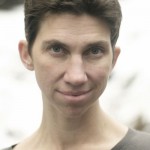
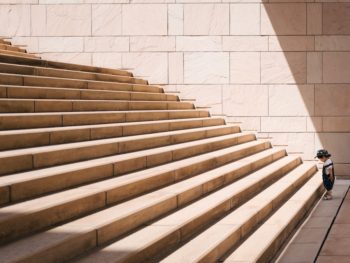




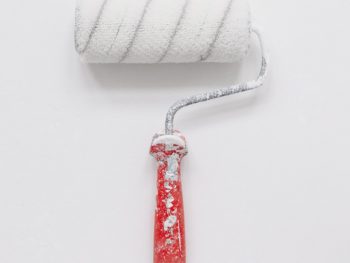

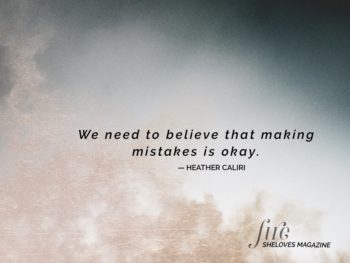

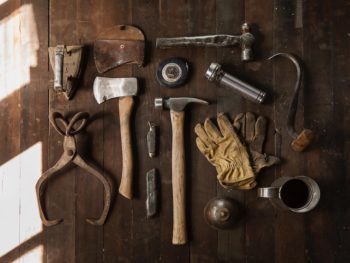
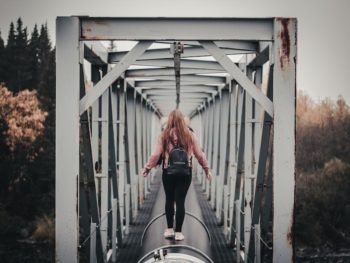
 You Can Change for the Better In an Instant
You Can Change for the Better In an Instant
this is a fabulous interview!!! Thank you both.
I feel like I’m in the room with you. Sitting around, sipping tea. So much of this resonates. The spiritual solitude, the small space with kids and all our emotions, the constant battle against the notion of being “too much,” people saying “I could never…” about our circumstances. I appreciate your story and witness to following your own path. It gives me courage and hope on the current downward whooosh of this roller coaster life. Great interview! Thank you.
Yay! I’m glad Esther’s spirit came through. It was a really, really lovely conversation.
I love all this, of course. But especially this:
“It’s much darker but more beautiful to start with the nothingness
inside. Rather than say, “I’m going to follow Esther, or Heather,” scoot
Esther over a little, and Heather over, and create a little bit of
openness.
And then follow a new path.”
Yes. And ouch. And yes.
I agree: ouch. Because I find a lot more safety in coming up short when I compare myself to others than I do in stepping out in bravery to really be who I want to be. I pray we both are bold in owning who we are!